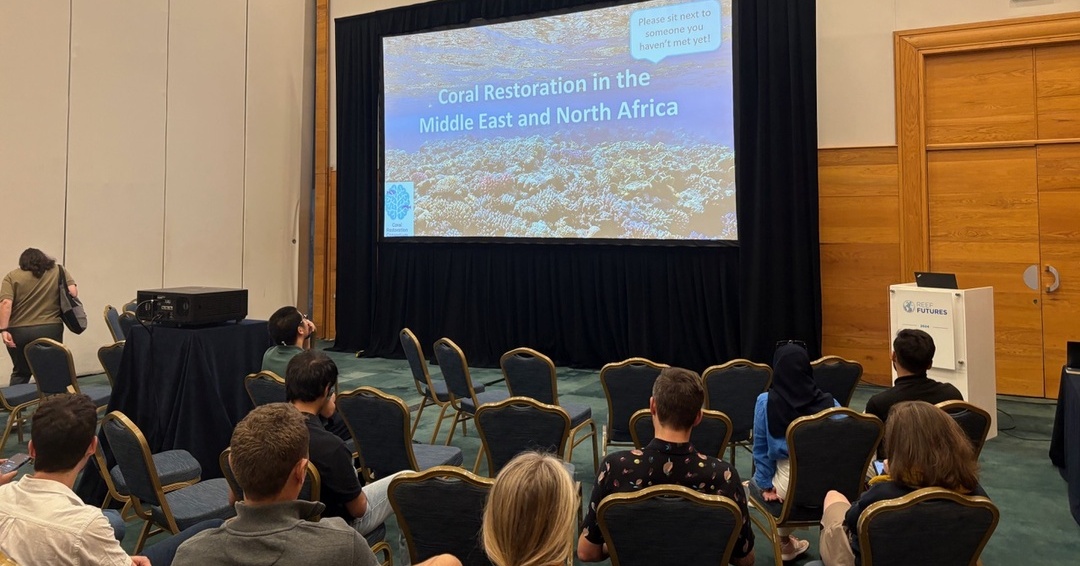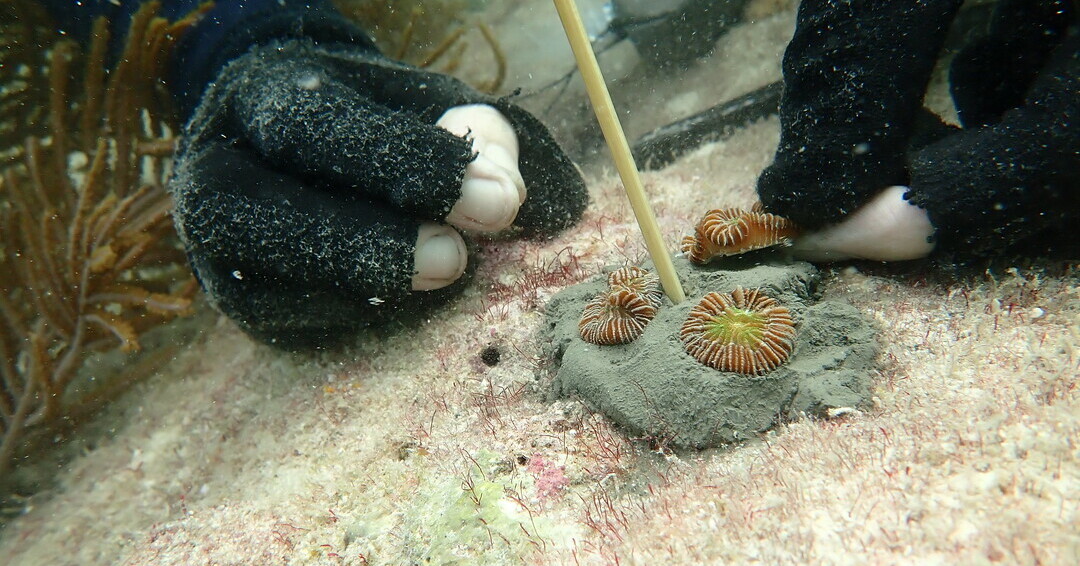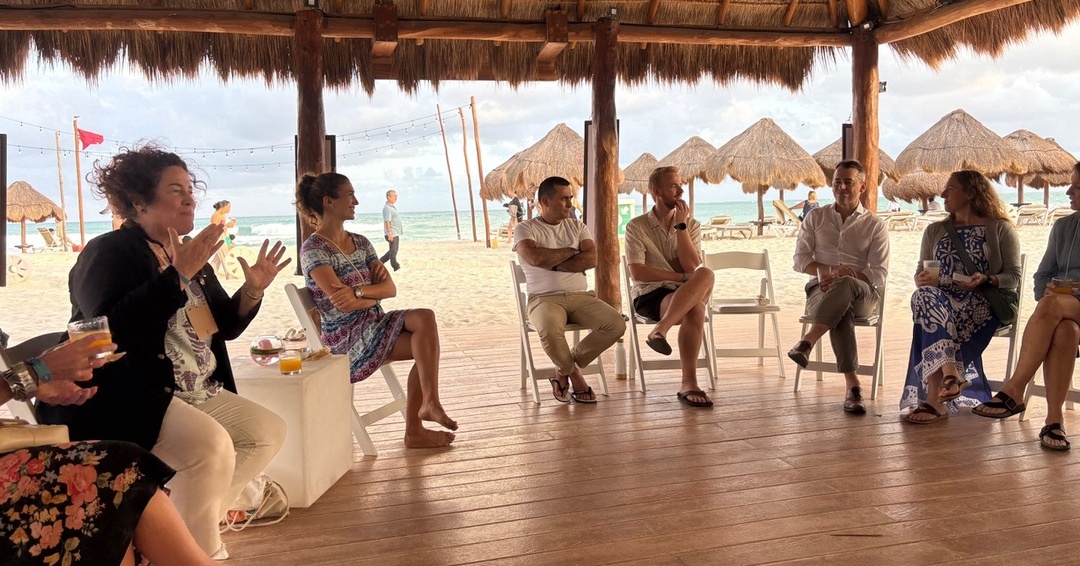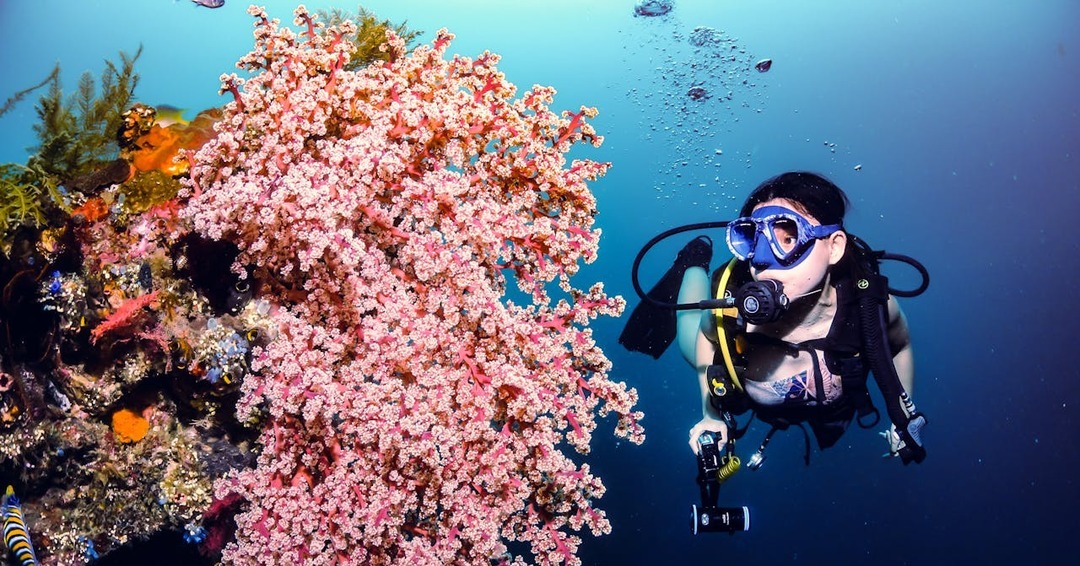CORDAP was present at Reef Futures, a world gathering on coral research and restoration.
The Conference gathered over 800 coral experts in Riviera Maya, Mexico, from December 9 to 13, 2024, to share insights on the latest research advances, and to unite everyone around the shared goal of effective coral restoration. Across the five days, more than 30 communications highlighted projects and initiatived funded by CORDAP.
CORDAP’s impact at Reef Futures 2024
- 1 workshop hosted: “Collaborative innovation: integrating practitioner insights and needs into coral R&D programs”
- 1 talk delivered: “Using advanced data analytics to inform best coral conservation and restoration practices”
- 7 CORDAP-funded projects (from CAP 2022) presented results and updates
- 34 talks partially or fully funded (CAP 2022 projects and CORDAP Roadmaps)
- Screening of CORDAP’s web episodes: “To the Rescue of Corals“

Anderson Mayfield represented CORDAP at a workshop on coral reef restoration in the Middle East, organized by the KAUST Coral Restoration Initiative (KCRI).
Co-innovation: Teamwork makes the dream work
Research and innovation are critical drivers of progress in coral conservation, but their true impact lies in addressing the real-world needs of practitioners. Cutting-edge technologies, novel methodologies, and groundbreaking scientific discoveries can only achieve meaningful results when they are accessible, applicable, and aligned with the challenges faced by those working directly in the field.
At the CORDAP workshop “Collaborative Innovation: integrating practitioner insights and needs into coral R&D programs”, 16 coral reef scientists, practitioners, and funding agency representatives came together to explore ways to bridge the gap between coral research, innovation and practical implementation. The workshop participants reflected a mix of perspectives, with 11 women and 5 men representing 7 countries, including the USA, Mexico, Honduras, Indonesia, Mauritius, the Bahamas, and Saudi Arabia.
One of the main takeaway messages that emerged from the workshop was the need for a global networking platform in which those working on similar topics, perhaps even in similar regions, could come together to ask questions, brainstorm, organize regional training events, and learn from one another. This platform would enable the matchmaking of those with aligned coral interests and aims. Attendees agreed that CORDAP and other global initiatives could play a significant role in facilitating connections amongst researchers from distinct fields, backgrounds, and geographical regions.

Diver transplanting boulder brain corals, Colpophyllia natans. Photo by Liv Williamson / FWC Fish and Wildlife Research Institute (CC BY-NC-ND 2.0)
Updates from the CORDAP field
The first cohort of CORDAP-funded projects (CAP 2022) has been successfully progressing all across the globe. Reef Futures was the perfect venue for providing updates on the latest challenges and achievements.
Dr. Line Bay (AIMS/RRAP) summarized the findings of the first CORDAP Scoping Study on Natural selection and assisted evolution of corals to climate change.
Dr. James Guest (University of Newcastle) presented new findings from his CORDAP-supported work (CAP2022) on breeding more thermo-tolerant corals.
Dr. Mary Hagedorn (Smithsonian Institution), Jon Daly (RRAP), and Dr. Anastazia Banaszak (UNAM) discussed their CAP 2022 project on cryopreservation, and the former led a biobanking workshop hosted by Revive and Restore after Reef Futures, in which CORDAP attended and provided valuable discourse.
Dr. Kristen Marhaver (CARMABI) shared new findings from their CORDAP-funded work on coral cryopreservation in the Caribbean.
Dr. Judy Lang (AGRRA) shared updates from their CAP 2022 project on developed science-based restoration roadmaps for Caribbean marine protected areas.
Dr. Valeria Pizarro (Perry Institute of Marine Science), also a CAP 2022 awardee, delivered a presentation on documenting the impacts of coral diseases and bleaching on Caribbean restoration programs.
Dr. Ofri Johan (National Research and Innovation Agency of Indonesia; CAP 2022 awardee) spoke about coral restoration efforts in Indonesia’s Seribu Islands.

Dr. Mary Hagedorn (left) discusses the importance of coral biobanking at the kickoff of the Revive and Restore workshop.
Looking Ahead: Catalyzing innovation and collaboration in 2025
The presentations and discussions at Reef Futures 2024 underscored the critical role of collaboration in advancing coral restoration. Moving forward, CORDAP remains committed to scaling up science that prioritizes practitioners’ needs, fostering global connections, and funding innovative solutions. Ultimately, enhanced and optimized coral restoration practices will contribute to achieving a major objective of the Kunming-Montreal Global Biodiversity Framework: to restore 30% of degraded marine ecosystems. To reach this goal, coral researchers, restoration practitioners, policymakers, non-profits, and philanthropists – everyone needs to be on board.
Learn more about the coral research and restoration projects funded by CORDAP and find out how you can join #TeamCoral

